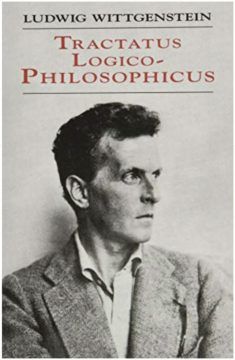Ed Simon in The Millions:
 Somewhere along the crooked scar of the eastern front, during those acrid summer months of the Brusilov Offensive in 1916, when the Russian Empire pierced into the lines of the Central Powers and perhaps more than one million men would be killed from June to September, a howitzer commander stationed with the Austrian 7th Army would pen gnomic observations in a notebook, having written a year before that the “facts of the world are not the end of the matter.” Among the richest men in Europe, the 27-year-old had the option to defer military service, and yet an ascetic impulse compelled Ludwig Wittgenstein into the army, even though he lacked any patriotism for the Austro-Hungarian cause. Only five years before his trench ruminations would coalesce into 1921’s Tractatus Logico-Philosophicus, and the idiosyncratic contours of Wittgenstein’s thinking were already obvious, scribbling away as incendiary explosions echoed across the Polish countryside and mustard gas wafted over fields of corpses. “When my conscience upsets my equilibrium, then I am not in agreement with something. But is this? Is it the world?” he writes. Wittgenstein is celebrated and detested for this aphoristic quality, with pronouncements offered as if directly from the Sibylline grove. “Philosophy,” Wittgenstein argued in the posthumously published Culture and Value, “ought really to be written only as poetic composition.” In keeping with its author’s sentiment, I’d claim that the Tractatus is less the greatest philosophical work of the 20th century than it is one of the most immaculate volumes of modernist poetry written in the past hundred years.
Somewhere along the crooked scar of the eastern front, during those acrid summer months of the Brusilov Offensive in 1916, when the Russian Empire pierced into the lines of the Central Powers and perhaps more than one million men would be killed from June to September, a howitzer commander stationed with the Austrian 7th Army would pen gnomic observations in a notebook, having written a year before that the “facts of the world are not the end of the matter.” Among the richest men in Europe, the 27-year-old had the option to defer military service, and yet an ascetic impulse compelled Ludwig Wittgenstein into the army, even though he lacked any patriotism for the Austro-Hungarian cause. Only five years before his trench ruminations would coalesce into 1921’s Tractatus Logico-Philosophicus, and the idiosyncratic contours of Wittgenstein’s thinking were already obvious, scribbling away as incendiary explosions echoed across the Polish countryside and mustard gas wafted over fields of corpses. “When my conscience upsets my equilibrium, then I am not in agreement with something. But is this? Is it the world?” he writes. Wittgenstein is celebrated and detested for this aphoristic quality, with pronouncements offered as if directly from the Sibylline grove. “Philosophy,” Wittgenstein argued in the posthumously published Culture and Value, “ought really to be written only as poetic composition.” In keeping with its author’s sentiment, I’d claim that the Tractatus is less the greatest philosophical work of the 20th century than it is one of the most immaculate volumes of modernist poetry written in the past hundred years.
More here.
